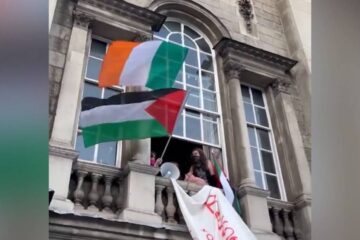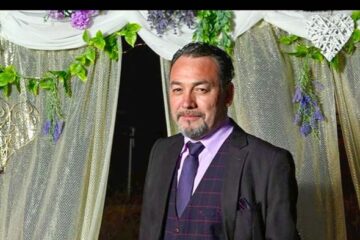Eight Latinos were honored at the White House last Friday for using their bicultural and bilingual experiences to connect and empower Hispanics in the U.S,. as well as in Latin America.
The individuals honored as Champions of Change are Luis Aguirre-Torres, Claire A. Nelson, Andres “Elmer” Arias, Greivis Vasquez, David R. Ayón, A. Patricia Janiot, Alvaro Maldonado, Ana Moraga, and Raul Hinojosa Ojeda.
“The Champions that we recognize today helped their countries and communities of origin, and in doing so have bettered our region as a whole,” said Assistant Secretary of State for Western Hemisphere Affairs Roberta Jacobson.
“These exceptional individuals, with their work in sports and community development, in education and financial inclusion, inspire others by their example. In a region with such profound human links between our societies, ideas and inspiration spread quickly to the benefit of people all over the Americas and the Caribbean.”
Andres “Elmer” Arias is a Salvadoran-American citizen who leads the Futbol Positivo (Positive Soccer) project in Fairfax County, Virginia. The program helped drop the crime rate in the area, and the program has been extended to places like Springfield, Reston and Culmore.
Arias is the president of the Foundation for Educational and Cultural Development (FUPEC, in Spanish), which teams up with hometown Salvadoran associations in the U.S. as well as private companies to help equip public schools in poor areas of El Salvador with computers and basic infrastructure.
“It became so successful…so far we have been working with 170 communities nationwide,” says Arias. “FUPEC builds libraries, laboratories, and computer labs…it benefits more than 150,000 students… I’m going to continue working very hard because there are more schools that need computers and libraries.”
Greivis Vasquez is a native of Caracas, Venezuela. After receiving his communications degree from the University of Maryland in 2010, he now is a professional basketball player for the NBA’s New Orleans Hornets.
He devoted much of his free time over the years to youth sports camps in Venezuela and was invited to partner with the U.S. State Department in their “Sports Diplomacy” program to help foster improved relations between the two countries.
“I remember growing up in Caracas and saying I was going to play in the NBA, and my friends would laugh,” says Vasquez, 25. “I left my family when I was 17 to reach my goal…I proved to myself that you can do it. I’m not the most talented player, but I’m a hard worker. If you do the right thing, work hard, and get your education, good things are going to happen to you.” He says he loves going back home and being in contact with the kids.
“I want to change their mind,” says Vasquez. The talented basketball player says he is more proud of his college education than his accomplishments as an NBA player. “I’ll have that for the rest of my life.”
Alvaro Maldonado is the founding director of Ballet Teatro Internacional (BTI), a non-profit organization that generates transformational dance training programs in the U.S and in Central America. BTI’s programming aims to inspire neglected, low-income and under-educated youth to enhance their health, aspirations and achievements and just as importantly, deter them from a life of drugs, violence and anti-social behavior.
Maldonado understands the impact these programs have, because he has lived through it. Maldonado grew up in the middle of a civil war in El Salvador.
“My friends were gang members, and I remember thinking this cannot be my life,” he says.
Maldonado started dancing not thinking it was going to be a way out or a way to positively affect so many people.
“One of the main things these programs do is use dance as a tool of education and belief in themselves,” he says. “The arts is a good way to educate people…It’s a very easy way for us to communicate with each other.”
Luis Aguirre-Torres is the founder and CEO of GreenMomentum and Cleantech Challenge México, two organizations created with the purpose of promoting, developing and implementing clean technology, as well as green jobs, in Latin America. Aguirre-Torres is also the founder of Impulso Verde, a non-profit organization whose mission is to create new job opportunities and retrain the Mexican workforce.
“We have great minds in Latin America,” says Aguirre-Torres. “I have met a lot of people who just need money or a little push, someone to inspire them…I try to inspire people to join me. Half the job is to be there and try, and the other half is hard work.”
At age 13, Ana Moraga Archila immigrated to the United States from Guatemala City. Upon graduation from Loyola Marymount University, she moved back to Guatemala and founded MuJER- Mujeres por la Justicia, Educación y el Reconocimiento (Women for Justice, Education, and Awareness).
For five years Ana led the organization’s funding and operational efforts in opening spaces of empowerment for Central American women sex workers. While attending Northeastern University School of Law, Ana is an advisor to MuJER’s Board of Directors and continues to work with other women’s organizations.
“I felt hypocritical doing work abroad but not back home,” says Moraga about what led her back to Guatemala. “We started to visit the women…Little by little, they started to share…Those stories were the foundation for the trust we developed in the community. They started to share their dreams.”
Born in Mexico and raised in Chicago, Professor Raul Hinojosa Ojeda is an associate professor in the Division of Social Sciences and in the César E. Chávez Department of Chicana and Chicano Studies at the University of California, Los Angeles.
He is also the founder of SF Global, LLC, which focuses on the development and implementation of low cost, secure and accessible financial services to the unbanked and under-banked populations in the United States diaspora and their home countries.
“I’m really, really moved and inspired by today,” says Ojeda who remembers growing up in Chicago but loading up the station wagon to drive to Mexico every summer.
“The biggest Latin American economy is right here in the U.S. and it’s creating a big change in this country. We are all the generation of the champions.”
Source: NBC Latinos




